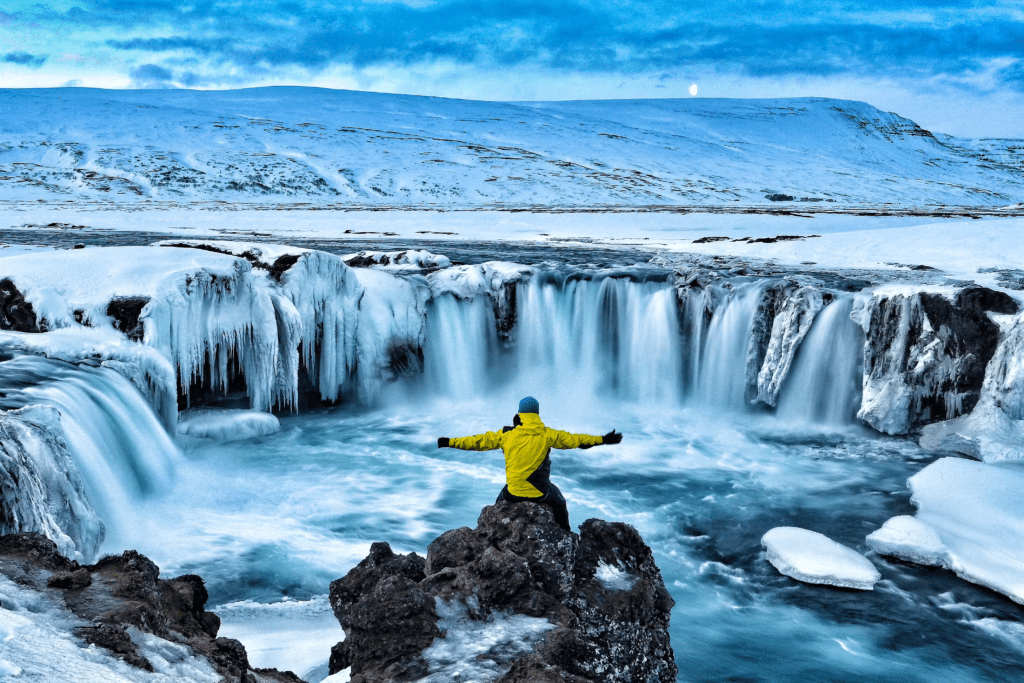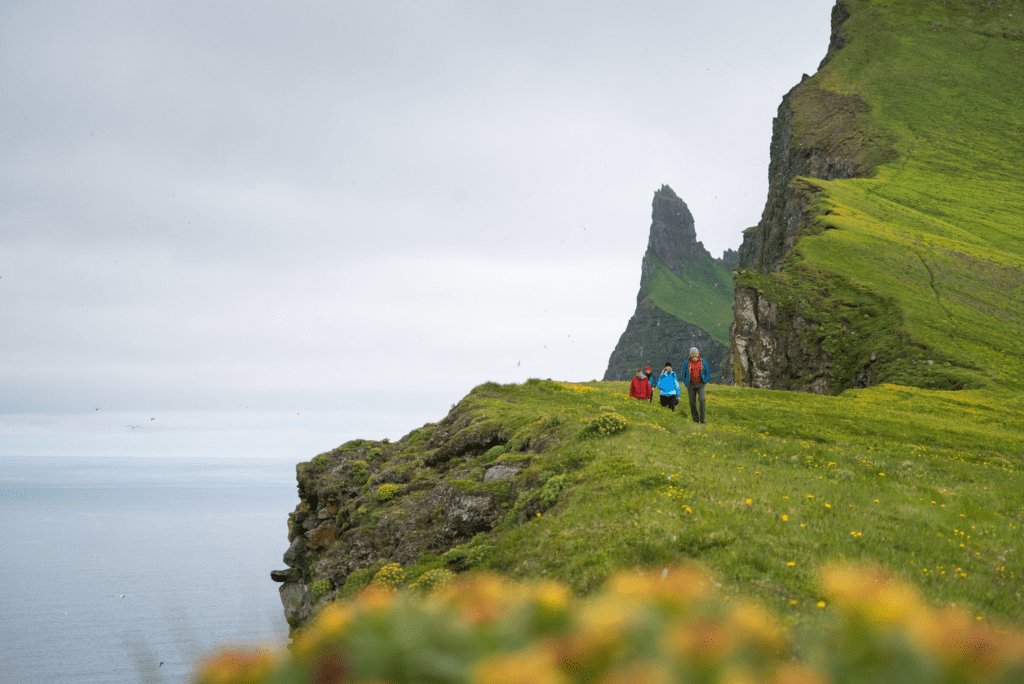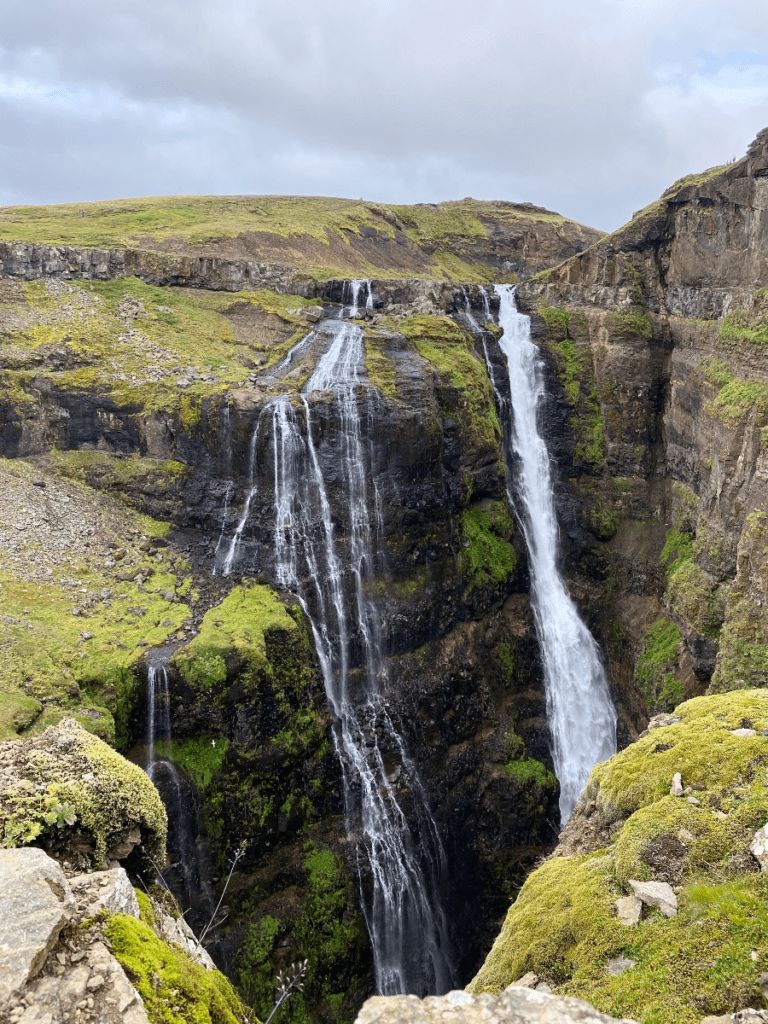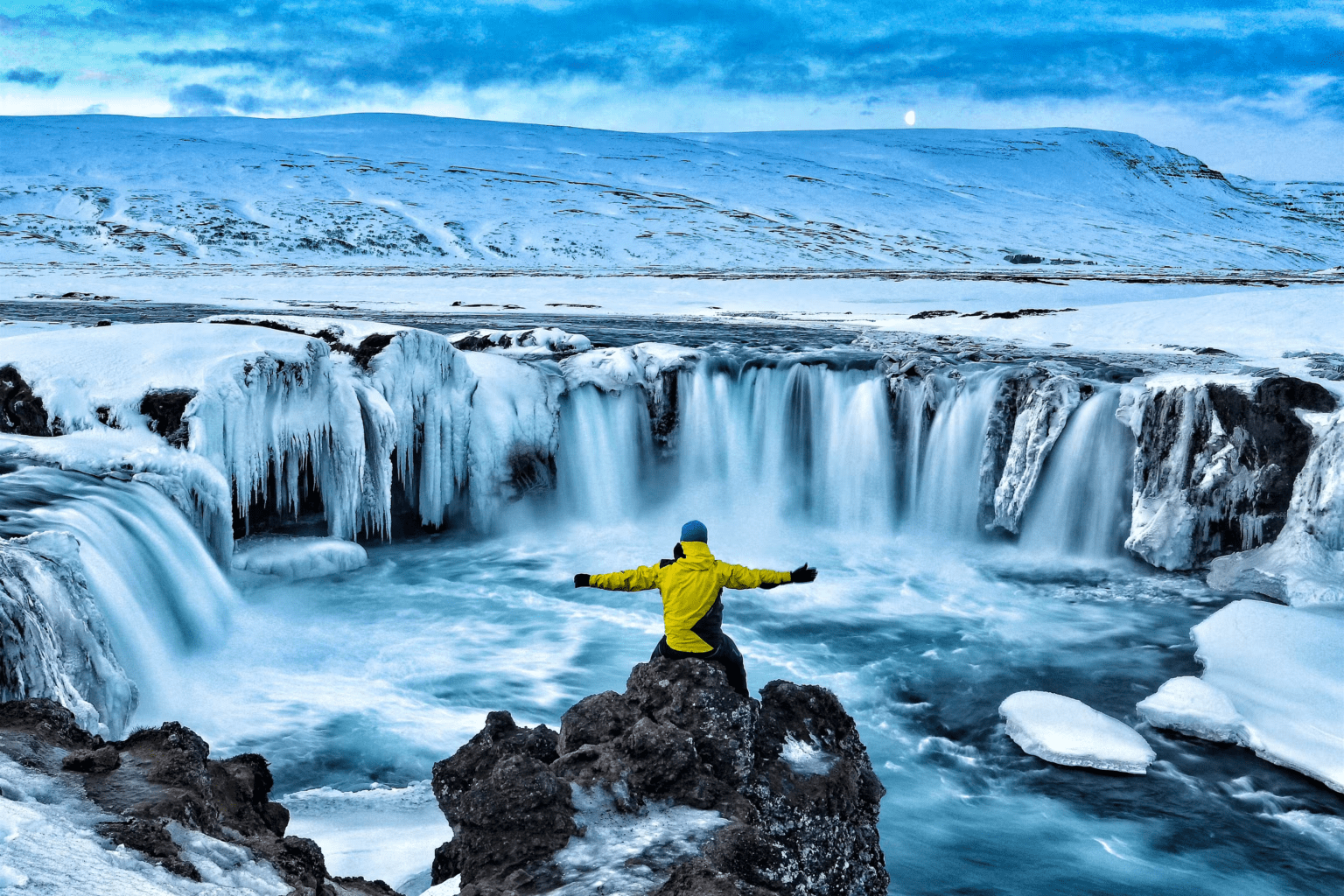Introduction: Why Iceland is a Hiker’s Paradise

Iceland, often referred to as the “Land of Fire and Ice,” is a dream destination for hikers and adventure seekers. With its dramatic landscapes, towering glaciers, geothermal hot springs, and volcanic terrain, Iceland offers some of the most breathtaking and diverse hiking trails in the world. Whether you’re looking for a multi-day trek through untouched wilderness or a short scenic hike near Reykjavik, this guide will help you find the best trails for your adventure.
In this comprehensive guide, we’ll cover:
✅ The top hiking trails in Iceland
✅ Essential hiking tips and safety guidelines
✅ Best times to hike in Iceland
✅ Packing list for hiking in Iceland
Top 10 Hiking Trails in Iceland
1. Laugavegur Trail – Iceland’s Most Famous Trek
🛤 Distance: 55 km (34 miles)
⏳ Duration: 4-6 days
🧗 Difficulty: Moderate to challenging
📍 Best Time to Hike: June – September
Highlights of the Laugavegur Trail:
- Starts in Landmannalaugar, a geothermal wonderland with colorful rhyolite mountains.
- Passes through black sand deserts, lush valleys, and volcanic landscapes.
- Ends in Þórsmörk, a stunning valley with rivers, glaciers, and woodlands.
- One of National Geographic’s Top 20 Best Hikes in the World.
💡 Pro Tip: Stay overnight in mountain huts or bring a tent if you prefer camping. Book accommodations early, as this trail is very popular!

2. Fimmvörðuháls Trail – The Ultimate One-Day Hike
🛤 Distance: 25 km (15.5 miles)
⏳ Duration: 1-2 days
🧗 Difficulty: Challenging
📍 Best Time to Hike: June – September
Why You Should Hike This Trail:
✔️ Hike between two glaciers, Eyjafjallajökull and Mýrdalsjökull.
✔️ Walk past Magni and Móði, two volcanic craters formed in 2010.
✔️ Start at Skógafoss Waterfall, one of Iceland’s most iconic waterfalls.
✔️ End in Þórsmörk, a beautiful valley with rivers and forests.
💡 Pro Tip: This is one of Iceland’s most demanding hikes. Be prepared for steep climbs, unpredictable weather, and river crossings!

3. Hornstrandir Nature Reserve – A Remote Arctic Wilderness
🛤 Distance: Varies (Multi-day treks)
⏳ Duration: 2-7 days
🧗 Difficulty: Challenging
📍 Best Time to Hike: June – August
Why It’s Worth the Adventure:
🌿 Iceland’s most remote and untouched wilderness.
🐾 Home to Arctic foxes, the only native land mammal in Iceland.
🏞️ No roads, no crowds – just pure nature and stunning fjords.
🚤 Only accessible by boat from Ísafjörður.
💡 Pro Tip: There are no stores or huts, so you must bring all supplies, including food, tents, and gear. This hike is for experienced adventurers only!

4. Glymur Waterfall Hike – Iceland’s Tallest Waterfall
🛤 Distance: 7 km (4.3 miles) round trip
⏳ Duration: 3-4 hours
🧗 Difficulty: Moderate
📍 Best Time to Hike: May – September
What Makes It Special:
✔️ At 198 meters (650 feet), Glymur is Iceland’s second tallest waterfall.
✔️ Cross a river on a log bridge and walk through a small cave!
✔️ Enjoy stunning views of the Botnsdalur Valley.
💡 Pro Tip: The trail can be steep and slippery, so wear good hiking boots and bring trekking poles for extra stability.

5. Reykjadalur Hot Springs – The Perfect Half-Day Hike
🛤 Distance: 6 km (3.7 miles) round trip
⏳ Duration: 2-3 hours
🧗 Difficulty: Easy to moderate
📍 Best Time to Hike: Year-round
Why You’ll Love It:
✔️ Hike through geothermal valleys with bubbling hot springs.
✔️ Soak in a natural hot river at the end of the trail!
✔️ Close to Reykjavik, making it a perfect day trip.
💡 Pro Tip: Bring a towel and a swimsuit, and arrive early to avoid crowds!

Best Time to Hike in Iceland
☀️ Summer (June – September)
✅ Best season for hiking – trails are open, and weather is milder.
✅ Midnight sun = extended daylight for longer hikes.
✅ Most mountain huts and camping areas are open.
❄️ Winter (October – April)
❌ Most trails are inaccessible due to snow and ice.
❌ Short daylight hours limit hiking time.
✅ Best for Northern Lights viewing and ice cave tours!
Essential Hiking Gear for Iceland
✔️ Waterproof hiking boots – Trails can be muddy and rocky.
✔️ Layered clothing – Weather changes fast! Pack thermal layers, waterproof jackets, and gloves.
✔️ Trekking poles – Useful for steep climbs and river crossings.
✔️ Reusable water bottle – Iceland’s water is some of the cleanest in the world.
✔️ Headlamp – If hiking in winter or during low daylight hours.
✔️ Map and GPS – Some trails don’t have signs, so navigation is key.
Iceland Hiking Safety Tips
🔹 Check weather conditions before heading out. Iceland’s weather is unpredictable!
🔹 Always tell someone your hiking plans. Cell phone service can be limited.
🔹 Stay on marked trails – Iceland’s delicate ecosystem is easily damaged.
🔹 Bring enough food and water – Some remote hikes have no facilities.
🔹 Be prepared for river crossings – Some trails require wading through icy rivers.
Conclusion: Your Ultimate Iceland Hiking Adventure Awaits!
Iceland offers some of the best hiking experiences in the world, with trails ranging from easy scenic walks to multi-day expeditions in untouched wilderness. Whether you choose to explore the Laugavegur Trail, Fimmvörðuháls, or Hornstrandir Nature Reserve, you’re guaranteed unforgettable landscapes and thrilling adventures.
✅ Start planning your Iceland hiking trip today!
✅ Which Iceland hike are you most excited to try? Let us know in the comments

